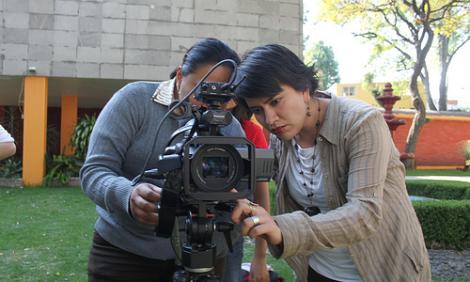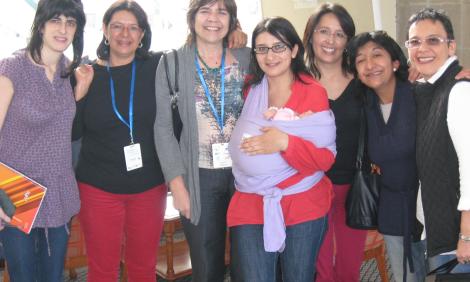Publication
10 Internet Rights and Principles
This document defines ten key rights and principles recommended to form the basis of internet governance. They have been compiled by the Internet Rights and Principles Dynamic Coalition (IRP), an open network of individuals and organisations working to uphold human rights in the Internet environment. The principles are rooted in international human rights standards, and derive from the coalition'…
Publication
APC Internet Rights Charter
First developed in 2001-2002 by APC members and partner organisations at Internet Rights workshops held in Europe, Asia, Latin America and Africa and updated in 2006, the APC Internet Rights Charter enshrines the rights of people and organisations to use the internet freely, particularly in their work for social, economic and environmental justice. The Charter refers specifically to the internet…
Feminist talk
On UN women, theme framing, buzz words and rockstars...
Jac sm Kee reports on her second day at the 55th session of the Commission on the Status of Women in New York. She posts about the connectivity irony, her doubts about the framing of this year's theme, the opening session, Michelle Bachelet's - UN Women Executive Director - introductory speech, women's empowerment principles developed in consultation with the private sector and Abigail Disney's…
Publication
Congo: Violence against Women and Information Communication Technologies
In Congo, Sylvie Niombo explores the intersection of VAW and ICTs, where mobile phone use appears to be the primary vehicle used to perpetrate VAW using ICTs. SMS and phone calls are used by some men to harass women and girls. Male monitoring of women’s use of mobile phones leads to blurring of privacy issues and power relations between men and women are reflected by who has the resources to buy…

In depth
Science and technology in Latin America: women breaking the glass ceiling
Latin American women are attaining good levels of education and training for the labour market, including knowledge of ICTs, but APC WNSP regional coordinator, Dafne Sabanes Plou acknowledges that digital inclusion as a factor in economic progress is just beginning to appear on the regional horizon and that gender equity is still sidelined from ICT policy discussions. She speaks to GenderIT.org…
In depth
Fatimata Seye Sylla: Not to have others speaking for us (video)
Fatimata Seye Sylla is a key figure in the Senegalese internet community. She worked for ten years within the Senegalese government, and for nine years in the private sector. She conducted the first national project to introduce ICT in the educational system. Fatimata shares with GenderIT.org why she came to Vilnius and what the IGF means to her personally and to women's rights.
In depth
Sexual rights, openness and regulatory systems
The summary of the 'Sexual rights, openness and regulatory systems' workshop co-organized by APC WNSP, Centre for Internet and Society and Alternative Law Forum at the Internet Governance Forum(IGF) in Vilnius, Lithuania on September 14 2010. T.Q. from the Lebanon EroTICs team speaks about the history of the local queer movement which correlates with the development of the internet in Lebanon.…

In depth
Latin America in the run-up to the IGF: global and regional synergy
The Association for Progressive Communications (APC), NUPEF and the Registry of Internet Domain Names for Latin America and the Caribbean sponsored the Third Regional Preparatory Meeting for the Internet Governance Forum (IGF), held in Ecuador in early August 2010. How might this regional meeting and the IGF impact each other? What recommendations and concerns emerged from the regional process?…
Feminist talk
Is Pakistan putting the UN Millennium Goals at risk?
"The discussions I witnessed at IGF 2010 really brought home to me the scale of the challenges we still face, if we are to make meaningful progress towards the goals of the IGF in general, and MDG3 in particular." Nighat Dad from the Pakistan MDG3: Take Back the Tech! project assesses the outcomes of IGF and the Millenium Development Goals in the context of national debates and women’s rights.
Feminist talk
Africa and internet governance: going global or stay local?
The impact of internet governance on Africa was discussed on September 16th 2010, in Vilnius, Lithuania. There was fair representation of all stakeholders. Officials from South Africa, Kenya and Tunisia were there; a representative from an internet service provider; and various Africa bodies that follow the process, such as AFRINIC, ISOC Africa and CICEWA. And there were representatives from…




